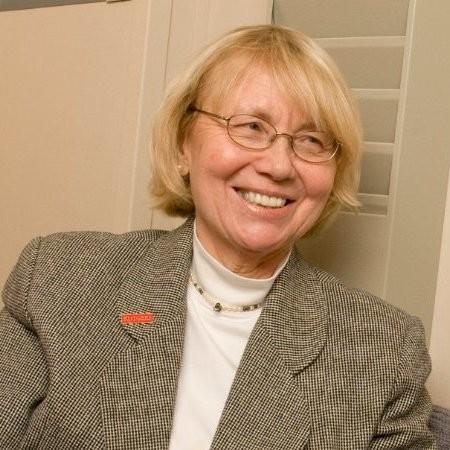Welcome Home: Dr. Joan Bennett Returns to Tulane
We are thrilled to announce that Dr. Joan Wennstrom Bennett is rejoining our team! Dr. Bennett’s illustrious career spans decades, marked by groundbreaking research and transformative leadership. She is a Distinguished Professor of Biochemistry and Microbiology at Rutgers University. Before Rutgers, Dr. Bennett spent over three decades at Tulane University, where she rose to become a Professor of Cell and Molecular Biology.
Bennett’s return is not just a homecoming—it’s a moment of immense pride and excitement for all of us. While still on the Tulane faculty in 2005, she was elected to the National Academy of Sciences for research conducted in collaboration with scientists at the Southern Regional Research Center and in which a series of gifted Tulane honors students made important contributions. If it hadn’t been for Hurricane Katrina, and the subsequent flooding of her home, it is unlikely that she would ever have left Tulane. That said, the rampant mold growth in her flooded home inspired her to pioneer a new avenue of research on fungal volatile organic compounds, work that contributed to her election to the American Academy of Arts and Sciences in 2021.
Her pioneering research in fungal genetics, mycotoxins, and volatile organic compounds has made a lasting impact on the scientific community. Her most recent work on fungal volatiles has led to the discovery that “mushroom alcohol” (1-octen-3-ol) serves as a neurotoxin and a plant growth inhibitor, opening new frontiers in microbiology and plant sciences.
Dr. Bennett is a past President of both the American Society for Microbiology and the Society for Industrial Microbiology & Biotechnology and has held leadership roles in the British Mycological Society and the International Union of Microbiological Societies. Her expertise is recognized worldwide, and she has earned numerous prestigious research awards, including the Distinguished Mycologist Award (2024) from the Mycological Society of America. She also has won several teaching awards including Honors Professor of the Year at Tulane in 1991; the Carski Teaching Award from the American Society for Microbiology in 2001; and the Waksman Outstanding Teaching Award from the Society for Industrial Microbiology and Biotechnology in 2015.
Her leadership extends beyond research and teaching. At Tulane, she was involved in founding the Women’s Center at Newcomb College, and at Rutgers she served as Associate Vice President for the Office for the Promotion of Women in Science, Engineering, and Mathematics ("SciWomen") from 2006 to 2014. She also served as Chair of the National Academies Committee on Women in Science, Engineering and Medicine from 2018 to 2021.
We are proud to announce that Dr. Bennett has been appointed as the Ida A. Richardson Chair of Botany, a distinguished position that recognizes her extraordinary contributions to the field. Her term will begin on August 15, 2025, and continue for a period of five years. This appointment underscores Tulane’s deep commitment to advancing botanical research and education, and we are honored to have Dr. Bennett leading the way. In addition to her new role, Dr. Bennett will come back to serve as a professor in the Department of Ecology and Evolutionary Biology, where she will teach and continue in her advanced research.
As she returns, Dr. Bennett reflects on her relationship with Tulane, "I have a lot of institutional loyalty. I am old enough to remember the days when it was common for university departments at research intensive universities not to hire women. But Tulane hired me and even gave me an early promotion to Associate Professor. I owe Tulane a lot for giving me the opportunity to thrive as a scientist back in a time when gender discrimination was all too common."
Dr. Bennett brings with her an ambitious and deeply meaningful research agenda. "Some of my reasons for returning are personal: I want to be closer to my family and my old friends. Some of my reasons are curiously sentimental: I want to be in New Orleans to commemorate the 20th anniversary of Hurricane Katrina. But my main objectives are practical.” She plans to expand her pioneering work on the physiological effects of volatile organic compounds (VOCs) emitted by filamentous fungi, a line of research sparked by her personal experience with mold contamination in the aftermath of Hurricane Katrina. "Going forward, I am interested in studying the impact of biogenic volatiles on the production of mycotoxins and working again with scientists at the Southern Regional Research Center will make it possible," she explained.
Dr. Bennett is also launching a new research project focused on the volatile organic compounds produced by mold contaminants in crewed space vessels—an emerging area of concern for space travel and astronaut health. Proximity to NASA's Stennis Space Center will be instrumental in developing this cutting-edge research. Through these efforts, she hopes to deepen our understanding of fungal biology in environments ranging from Earth’s ecosystems to the confines of space.
Her return brings unparalleled expertise, leadership, and inspiration to our team. We are excited to welcome her back and continue our journey together, pushing the boundaries of science, mentorship, and innovation.
Welcome home, Dr. Bennett!

